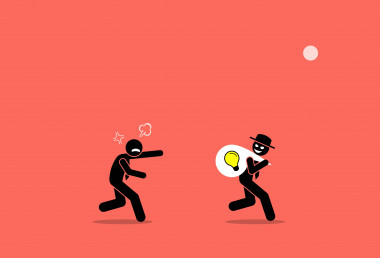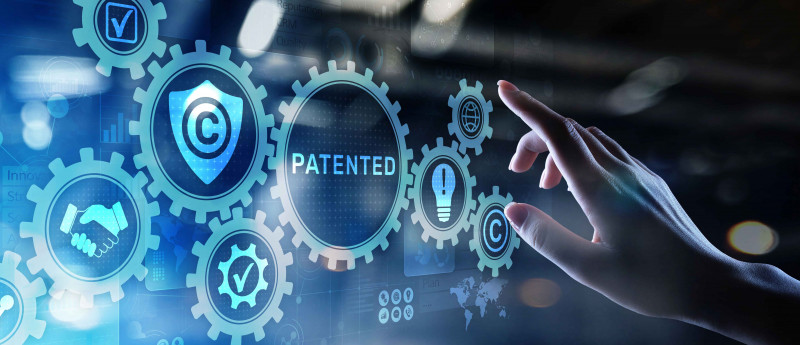
What are patents?
Patents provide inventors with a legally protectable monopoly over their inventions and protect new and innovative technical features of products and processes. They normally last for a limited period of 20 years depending on the country.
To qualify for patent protection, an invention must be:
- New;
- Involve an innovative step;
- Be capable of industrial application; and
- Not specifically excluded from protection.
To obtain a patent, an application for a patent needs to be filed; this will normally be with the patent office of the country where the inventor works.
Patents can provide a high level of protection and are highly important in some industries; this is clearly seen in the case of pharmaceutical companies, who spend millions of pounds and extensive time on research and development.
The process for registering a patent is not easy and can be expensive. It also exposes a product to competitors through public disclosure of the technology behind it without the competitor breaching the patent.
Types of patent infringement
There are two types of patent infringement:
- Direct infringement, meaning acts done directly in relation to patented products or patented processes.
- Indirect infringement, meaning acts done indirectly in relation to patent products or patented processes.
In regards to direct infringement, this covers activities relating to patented products, use of patented processes, offering patented processes for use and products obtained directly through patented processes.
Where the patented invention is a product, direct patent infringement occurs when the defendant:
- Makes the product;
- Disposes of the product (i.e. putting them on the market in the course of trade);
- Offers to dispose of the product;
- Uses the product;
- Imports the product; or
- Keeps the product.
Where the patented invention is a process, direct patent infringement occurs when the defendant:
- Uses the process;
- Offers the process for use in the UK and the defendant either knows, or it would be obvious to a reasonable person in the circumstances, that use of the patented process without the consent of the proprietor would be an infringement of the patent;
- Disposes of the process;
- Offers to dispose of the process;
- Imports the process; or
- Keeps the process.
A defendant may be guilty of indirect patent infringement where all of the following apply:
- The defendant supplies or offers to supply in the UK a person with any of the means relating to an essential element of the patented invention for the purpose of putting the invention into effect.
- Either the defendant knows or it must be obvious to a reasonable person in the circumstances that the means are suitable for putting, and are intended to put, the invention into effect in the UK.
- The person supplied with the information or to whom the offer is made is not a licensee or another person entitled to work on the relevant invention.

Defending a patent infringement claim
There are a number of defences available if you find yourself defending a patent infringement claim, such as:
- Your actions have been carried out in private or for non-commercial purposes. However please note that even one commercial use of a patent will mean this will defence is unlikely to be available.
- The relevant acts were done for experimental purposes. This defence applies even if the experiment was carried out with a potential commercial objective.
- When preparing a medicine for an individual when prescribed by a doctor or dentist.
- Acts carried out in relation to ships, aircraft and other vehicles that are temporarily or accidentally in a UK territory.
- Use of a product that has been harvested where a farmer has bought material from the patent owner or with the patent owner’s consent.
- Use of animal or animal reproductive material for an agricultural purpose where the relevant material has been sold to a farmer by the patent owner or with the patent owner’s consent.
- Studies, tests or trials relating to medicines for humans and animals.
- Uses that pre-date the priority date of the patent.
- The right to continue use that began in other circumstances e.g. between expiry of a patent and the restoration of that patent.
- Acts done with the consent of the patent owner.
- The patent owner has been involved in anti-competitive practices.
- Exhaustion of rights i.e. the resale of goods that have been placed on the market in the European Economic Area (EEA) or with the consent of the patent owner.
There may also be grounds to invalidate a patent, such as:
- Lack of novelty.
- Lack of inventiveness.
- Lack of industrial applicability.
- The patent relates to an excluded subject matter e.g. discoveries, literary, dramatic, musical or artistic works, business methods, computer programs, presentations of information and methods of treatment or diagnosis for medical conditions suffered by animals or humans.
- Being contrary to public policy or morality.
- Lack of title i.e. where a third party argues they are entitled to the patent rather than the current patent owner.
- Insufficiency i.e. where the specification of the patent is not clear and complete in order to enable the invention to be performed.
- Where there is added matter i.e. the specification of the patent is wider than that in the application as first published.
- The patent has been amended and that amendment should not have been allowed.
What happens if you breach patent law?
Any person who has committed patent infringement can be sued. Both companies and company directors can be sued for patent infringement depending on the circumstances.
There are various remedies available to patent owners where patent infringement is proven, including:
- Obtaining an injunction restraining the defendant from committing any type of patent infringement;
- Obtaining a court order that the defendant deliver up or destroy any infringing product or article related to the patented product or process;
- Damages or an account of profits relating to the infringement;
- A declaration that the claimant’s patent is valid and has been infringed by the defendant; and
- Publication of the court’s judgment setting out the infringement that has occurred.
Successful claimants in patent infringement claims are also normally entitled to recover their costs from an unsuccessful defendant. As a general rule, normally 70% of costs are recoverable unless capped costs apply. Conversely, an unsuccessful claimant in patent infringement proceedings will be liable to pay the defendant’s costs in successfully defending the claim.
Our specialist intellectual property disputes team routinely advises on a broad range of disputes relating to patents along with other intellectual property disputes relating to copyright, trademarks, passing off, design rights, confidential information, reputation management and data protection issues. The intellectual property team at Myerson is regularly instructed by clients from the arts, media, textile and clothing sectors in the UK and internationally. If you need advice on patent or other intellectual property infringements, please do not hesitate to contact a member of the team today.



